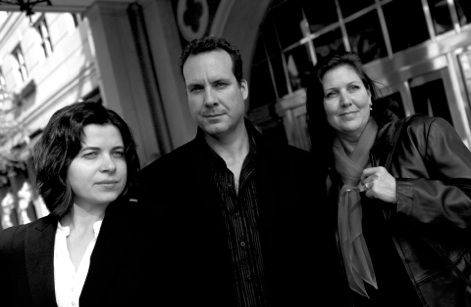Frost profs’ music fares best in Pulse program at Festival Miami
An international focus infused the concert by Pulse Chamber Music Wednesday night at Festival Miami. Yet the two most intriguing scores on the program were by two composition faculty members at the UM Frost School of Music, who happen to be married.
In projected program notes, Charles Norman Mason stated that Stagger, which here received its Florida premiere, was inspired by his experiences as a creative artist whose progress and successes were interrupted by distractions and setbacks. “Jolt” may be a better description of the score’s musical content with driving phrases broken up by irregular rhythmic patterns. Suggestions of jazz and minimalism wind their way through this energetic brew, the few moments of calm almost folk-like in spirit. Margaret Donaghue Flavin’s focus and articulation were dynamic in the rapid high phrases of the clarinet part.
Heroic Measures by Dorothy Hindman (Mason’s wife) received its world premiere Wednesday. The score is conceived as an elegy and tribute to individuals who have died from catastrophic illness despite continuing medical treatment. The subject matter is not the favored media tale of people triumphing over a killer disease nor is Hindman’s score sentimental ear candy for the audience—rather, her music is intense and rewarding.
Heroic Measures begins with piercing writing for violin and clarinet against a jagged piano line. After a more agitated section, the music becomes increasingly dark and desolate. At times the violin is played close to the bridge, producing harsh sounds. Short melodic cells and figurations lead to a series of single chords with the clarinetist breathing into the instrument. One final slow breath concludes this emotional journey without any catharsis.
Demanding for performers and audience alike, Hindman’s score is powerful and skillfully conceived. She could not have wished for a more riveting, committed performance, as given by violinist Scott Flavin, clarinetist Donaghue Flavin and pianist Marina Radiushina.
The accompanying video, also created by Hindman, however, distracted rather than enhanced the music. Consisting of newspaper headlines and medical definitions of the work’s title, the visuals were unnecessary; Hindman’s compelling score can stand effectively on its own.
The remainder of the works on this sparsely attended program at Gusman Concert Hall were somewhat anti-climactic, none more so than Alexander Arutiunian’s Suite for Trio. A listener once described Arutiunian work as music from a smoke-filled Armenian night club and his suite certainly fills that bill.
The work’s best moments come in the austere “Dialog” for violin and clarinet but the final dance movement is too obvious, the melodies downright corny. The work does effectively exploit the range of the three instruments. Donaghue displayed warmly colored tone, leaping through klezmer fireworks to brilliant effect. Radiushina’s fleet pianism and fine dynamic shading and Flavin’s sweetened rubato made the best case for this trite potboiler.
Derek Bermel’s Mulatash Stomp, a 1991 student work, is a party piece and great fun. The composer’s score includes such indications as “meaner” and “grotesque.” Bermel combines an electric pulse with harsh and violent sounds played at the instruments’ most extreme range.
Works by Bright Sheng and Victoria Bond were repeated from previous Pulse concerts. Sheng’s Tibetan Dance portrays Tibet’s high mountains and endless plains. Non-Western musical modes, often devoid of melody or harmony, and lean textures pervade this well-crafted piece.
Victoria Bond’s populist suite Bridges mixes Appalachian bluegrass, Chinese folk melodies, 1960’s folk pop and even Gershwin quotes in an accessible and entertaining manner.
Two of Flavin’s transcriptions of vignettes by Cuban composers were particularly delightful. René Touzet’s Nostalgica is a haunting Latin melody treated with salon intimacy and Flavin added a touch of gypsy violin fire to the oft-played Malaguena of Lecuona.
Festival Miami continues with soprano Dawn Upshaw and students from the Frost Opera Theater performing works by Maria Schneider with the composer conducting the Henry Mancini Institute Orchestra 8 p.m. October 25 at UM Gusman Concert Hall. festivalmiami.com; 305-284-4940.
Posted in Performances
Leave a Comment
Thu Oct 16, 2014
at 12:01 pm
No Comments
